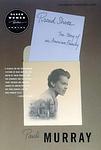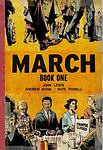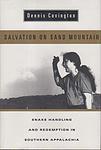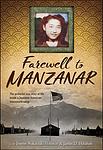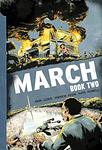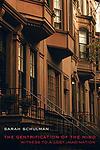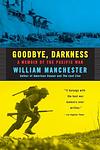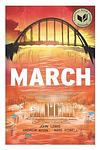The Greatest "Nonfiction, Autobiography, American History" Books Since 1950
Click to learn how this list is calculated.
This list represents a comprehensive and trusted collection of the greatest books. Developed through a specialized algorithm, it brings together 300 'best of' book lists to form a definitive guide to the world's most acclaimed books. For those interested in how these books are chosen, additional details can be found on the rankings page.
Genres
Autobiography is a literary genre that focuses on the life story of the author. It is a first-person account of the author's experiences, thoughts, and emotions, often including significant events and milestones that have shaped their life. Autobiographies can be written by anyone, from famous public figures to ordinary people, and can cover a wide range of topics, including personal growth, career achievements, struggles, and relationships. This genre provides readers with a unique insight into the author's life and perspective, making it a popular and engaging category of books.
The "American History" category encompasses a broad range of books that delve into the events, figures, and forces that have shaped the United States from its pre-colonial days to the present. This genre includes works on pivotal moments such as the American Revolution, Civil War, and civil rights movements, as well as studies of political, social, and cultural developments across various eras. It covers biographies of influential leaders, analyses of policy changes, and examinations of societal shifts. Whether providing comprehensive overviews or focusing on specific incidents or decades, books in the American History category aim to illuminate the complexities of the nation's past, offering readers insights into the events that have defined the American experience and the context for its ongoing evolution.
Countries
Date Range
Reading Statistics
Click the button below to see how many of these books you've read!
Download
If you're interested in downloading this list as a CSV file for use in a spreadsheet application, you can easily do so by clicking the button below. Please note that to ensure a manageable file size and faster download, the CSV will include details for only the first 500 books.
Download-
1. The Fire Next Time by James Baldwin
This book is a powerful exploration of race relations in America in the early 1960s. The author presents his experiences and observations in the form of two essays. The first is a letter to his 14-year-old nephew, discussing the role of race in American history. The second essay takes a broader look at the civil rights movement and the author's own experiences with religion and identity. Throughout, the author presents a passionate plea for the recognition of the humanity and dignity of all people, regardless of race.
-
2. Hell's Angels by Hunter S. Thompson
This book provides an immersive exploration of the infamous motorcycle gang, the Hell's Angels, as seen through the eyes of a journalist who spent a year living and riding with them. The narrative delves into the lifestyle, mindset, and public perception of these notorious figures, offering a raw and unfiltered look into their world. It also examines the wider cultural context of the 1960s, including societal anxieties and the counterculture movement, and how these factors intersect with the Hell's Angels' existence.
-
3. Coming Of Age In Mississippi by Anne Moody
The book is a powerful autobiographical account of a young African American woman's life growing up in rural Mississippi during the 1940s and 1950s. It vividly portrays the struggles with poverty, racism, and sexism in a deeply segregated society, as well as her burgeoning activism. The narrative follows her journey from childhood, through her college years, and into her involvement with the Civil Rights Movement, offering a personal perspective on the fight for racial equality in the United States. Her story is one of courage and determination, reflecting the broader experiences of many black Americans during a pivotal era in American history.
-
4. Crusade For Justice by Ida B. Wells
"Crusade for Justice" is an autobiography that chronicles the life and work of a pioneering African American journalist and activist who bravely led an anti-lynching crusade in the United States during the late 19th and early 20th centuries. The book details her personal experiences with racial discrimination and her tireless efforts to document and fight against the injustices faced by African Americans. Her narrative provides a powerful insight into the civil rights struggles of her time and her unwavering commitment to justice and equality, making her one of the most significant figures in American social reform.
-
5. Proud Shoes by Pauli Murray
"Proud Shoes" is a poignant memoir that chronicles the complex history of an African American family through the lens of the author's own lineage. The narrative delves into the lives of the author's grandparents, delving into the antebellum South, the impact of the Civil War, and the enduring legacy of slavery and racial discrimination. The book weaves personal stories with broader historical events, offering a rich tapestry of resilience, struggle, and the quest for racial equality. It is a testament to the strength of family bonds and the author's quest to understand and honor her ancestors' experiences and the social forces that shaped their lives.
-
6. Pride Of Family by Carole Ione
"Pride of Family" is a non-fiction work that delves into the rich and complex history of an African American family across four generations, from the antebellum era through the civil rights movement. The narrative weaves together personal memoir, historical documentation, and oral testimony to explore the lives of both free and enslaved ancestors, revealing the intricate social fabric of black life in America. The author embarks on a journey of self-discovery, unearthing stories of resilience, dignity, and survival, while confronting the legacies of slavery and racial identity. This book is a testament to the endurance of family bonds and cultural heritage amidst the challenges posed by a society deeply scarred by racial divisions.
-
7. A Woman's Civil War by Cornelia Peake McDonald
This book is a personal account of a woman's experiences during the American Civil War, offering a detailed and poignant perspective on the hardships and turmoil of the era. The narrative is drawn from the diaries and letters of the author, who lived through the conflict and witnessed its impact on her family, community, and way of life. Her writing provides a unique window into the domestic and social challenges faced by women, as well as the broader political and military upheavals of the time, capturing the emotional and physical landscape of a country divided by war.
-
8. March: Book One by John Lewis
"March: Book One" is a graphic novel that depicts the early life of a key figure in the American civil rights movement. Raised in rural Alabama, he grows up inspired by the activism surrounding the Montgomery Bus Boycott and the words of Martin Luther King Jr., which sets him on the path of nonviolent protest. The novel highlights his commitment to the fight for equal rights and his journey from a young boy on a farm to one of the key figures in the civil rights movement.
-
9. Zeitoun by Dave Eggers
The book is a non-fiction account of a Syrian-American contractor named Zeitoun who decides to stay in New Orleans during Hurricane Katrina. Despite the chaos, he paddles around the city in a canoe, helping those he can. However, he is arrested and accused of looting, leading to a harrowing experience in prison. The narrative explores themes of family, survival, and the breakdown of civil liberties in times of crisis.
-
10. Salvation on Sand Mountain by Dennis Covington
The book is a personal journey of a journalist who, while covering a murder trial of a snake-handling preacher, becomes deeply involved in the culture of snake handling in Southern Appalachia. He explores the history and religious significance of snake handling, while also wrestling with his own faith and the nature of religious ecstasy. The narrative is a blend of true crime, personal memoir, and religious exploration.
-
11. The Yellow House by Sarah M. Broom
"The Yellow House" is a memoir that tells the story of a hundred years of the author's family and their relationship to home in a neglected area of one of America's most mythologized cities, New Orleans. The narrative follows the author's journey from growing up in the titular house in New Orleans East, a largely ignored part of the city, to her pursuit of education and a career as a journalist, and her eventual return to New Orleans after Hurricane Katrina. The book explores themes of race, poverty, and inequity in America, while also being a deeply personal exploration of family, identity, and place.
-
12. Farewell to Manzanar by Jeanne Wakatsuki Houston, James D. Houston
"Farewell to Manzanar" is a memoir that tells the story of a Japanese-American family's experiences in internment camps during World War II. The narrative follows the young protagonist as she grows up in the camps, dealing with the harsh realities of racial prejudice and forced displacement. The memoir offers a deeply personal and poignant perspective on a dark period in American history, highlighting the resilience, strength, and dignity of the human spirit in the face of adversity.
-
13. Little Heathens: Hard Times And High Spirits On An Iowa Farm During The Great Depression. by Mildred Armstrong Kalish
"Little Heathens" is a memoir of Mildred Armstrong Kalish's childhood on an Iowa farm during the Great Depression. Kalish recounts the daily struggles and joys of life on the farm, from making do with limited resources to finding creative ways to entertain themselves. Through her vivid descriptions and humorous anecdotes, Kalish paints a picture of a resilient and close-knit community that persevered through tough times with a spirit of determination and optimism.
-
14. The Words Of César Chávez by César Chávez
This book is a collection of speeches, essays, and reflections from a renowned labor leader and civil rights activist who dedicated his life to improving the working conditions and lives of agricultural workers. Through nonviolent tactics and powerful rhetoric, the author articulates his vision for social justice, emphasizing the importance of community, nonviolence, and the struggle for equality. His words offer insight into his philosophy and the principles that guided his efforts to organize farm workers, leading to significant advancements in labor rights and inspiring future generations of activists.
-
15. March: Book Two by John Lewis
This graphic novel continues the memoir of a prominent civil rights leader, chronicling his commitment to nonviolent protest in the fight for racial equality in the United States. It delves into his personal experiences during the early 1960s, including his participation in the Freedom Rides, the historic 1963 March on Washington, and his leadership in the Student Nonviolent Coordinating Committee. The narrative captures the intensity of the movement, the confrontations with segregationist forces, and the internal struggles within the civil rights organizations, all set against the backdrop of the growing civil rights movement and the push for legislation that would eventually lead to the Voting Rights Act of 1965.
-
16. The Gentrification of the Mind by Sarah Schulman
"The Gentrification of the Mind" is a critical examination of the impact of the AIDS epidemic on American society and culture, particularly in relation to urban gentrification. The author argues that the loss of a generation of artists, writers, and thinkers due to the AIDS crisis led to a homogenization of culture and thought, similar to the way gentrification leads to a homogenization of urban neighborhoods. The book is a powerful critique of the erasure of diverse voices and experiences, and a call to remember and honor the lost history of those affected by the epidemic.
-
17. Goodbye, Darkness by William Manchester
"Goodbye, Darkness" is a memoir that blends personal narrative with historical analysis, recounting the author's experiences as a Marine in the Pacific Theater during World War II. The book serves as both a cathartic journey and a detailed account of the brutal combat faced by U.S. Marines against Japanese forces. The author revisits battlefields where he once fought, such as Okinawa and Guadalcanal, reflecting on the horrors of war and the process of coming to terms with his past. Through this poignant exploration, the memoir delves into themes of memory, trauma, and the lasting impact of warfare on those who endure it.
-
18. American Prison: A Reporter's Undercover Journey Into The Business Of Punishment by Shane Bauer
In "American Prison: A Reporter's Undercover Journey Into The Business Of Punishment," Shane Bauer goes undercover as a correctional officer at a private prison in Louisiana to expose the inhumane conditions and profit-driven motives of the American prison system. Through his experiences, Bauer reveals the corrupt and exploitative nature of the for-profit prison industry, as well as the systemic racism and abuse of power that permeates the entire criminal justice system.
-
19. March: Book Three by John Lewis, Andrew Aydin
"March: Book Three" concludes a powerful graphic novel trilogy that depicts the harrowing, inspiring, and true story of a key figure in the American civil rights movement. This volume covers significant events such as the bombing of the 16th Street Baptist Church in Birmingham, Alabama, the Freedom Summer, and the Selma to Montgomery marches. It highlights the courage, struggles, and sacrifices of those fighting for voting rights and equality, culminating in the passage of the 1965 Voting Rights Act. The narrative combines stark visuals with firsthand accounts, providing an immersive experience of the relentless fight against racial injustice and the personal and collective journey of activists who sought to change the fabric of American society.
-
20. On Juneteenth by Annette Gordon-Reed
"On Juneteenth" is a memoir by Pulitzer Prize-winning author Annette Gordon-Reed that explores the history and significance of Juneteenth, the holiday commemorating the end of slavery in the United States. Gordon-Reed reflects on her own experiences growing up in Texas and the ways in which Juneteenth has been celebrated and politicized over time. She also delves into the complex legacy of slavery and racism in America, offering a powerful and thought-provoking exploration of this important holiday and its ongoing relevance.
Reading Statistics
Click the button below to see how many of these books you've read!
Download
If you're interested in downloading this list as a CSV file for use in a spreadsheet application, you can easily do so by clicking the button below. Please note that to ensure a manageable file size and faster download, the CSV will include details for only the first 500 books.
Download



